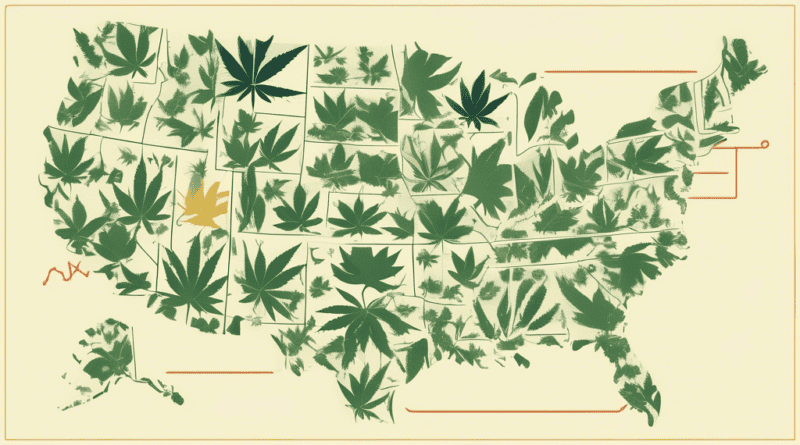Understanding Cannabis Advertising Restrictions Across States
The legalization of cannabis, whether for medical or recreational use, has opened up a new and burgeoning market in the United States. As more states join this trend, businesses in the cannabis industry face a complex landscape of regulations, especially when it comes to advertising. These regulations vary significantly from one state to another, making it crucial for businesses to be aware of and comply with the specific rules in their operational regions.
General Federal Guidelines
At a federal level, cannabis remains classified as a Schedule I controlled substance under the Controlled Substances Act (CSA). This classification means that cannabis is illegal under federal law, despite its legality in many states. Due to this discrepancy, any form of interstate advertising or marketing can potentially attract federal scrutiny. Therefore, businesses must cautiously navigate the thin line between federal law and state legislation.
State-Specific Advertising Restrictions
Each state that has legalized cannabis—whether for medical or recreational use—has developed its own set of advertising regulations. These rules are designed to prevent misleading information, protect public health, and ensure that cannabis advertising does not reach minors. Below is a breakdown of advertising restrictions in some key states:
California
In California, cannabis businesses are subject to stringent advertising regulations governed by the Bureau of Cannabis Control. Some key rules include:
- Advertisements cannot be placed within 1000 feet of a school, daycare center, or youth center.
- The audience for any cannabis-related advertisement must be at least 71.6% adults aged 21 or older.
- False or misleading claims are strictly prohibited.
Colorado
As one of the first states to legalize recreational cannabis, Colorado has established comprehensive advertising guidelines. These include:
- Advertisements cannot be placed on television, radio, print, or digital media if there is a likelihood of reaching an audience of minors.
- Outdoor advertising, such as billboards, is significantly restricted.
- Use of any image or language that is attractive to minors, including cartoon characters, is forbidden.
Washington
In Washington state, cannabis advertising is also tightly controlled. The main restrictions are:
- Advertisements must not depict the use of cannabis by a person.
- Health claims and statements that are not substantiated by scientific evidence are banned.
- Advertisements are not allowed near areas where minors congregate, such as schools and parks.
Oregon
Oregon’s regulations emphasize public safety and preventing underage consumption. Key rules include:
- Advertisements must not be placed within 1000 feet of a school.
- No medium can be used where there is higher likelihood of reaching individuals under 21 years of age.
- False or misleading health benefits claims are strictly prohibited.
Challenges and Compliance
One of the main challenges faced by cannabis businesses is ensuring compliance with these varied and stringent advertising restrictions. Non-compliance can result in hefty fines, revocation of licenses, and other legal consequences. Moreover, the rapid evolution of legislative landscapes requires businesses to stay constantly updated on new regulations.
Effective compliance strategies include consulting with legal experts specializing in cannabis law, regular training for marketing teams, and employing compliance officers to monitor advertising practices continuously. Additionally, businesses may find it beneficial to join industry associations that offer resources and guidance on navigating advertising restrictions.
Conclusion
The patchwork nature of cannabis advertising regulations across the United States underscores the importance of understanding and adhering to state-specific laws. As the industry continues to grow, so too will the regulatory frameworks designed to govern it. By staying informed and proactive, cannabis businesses can not only avoid legal pitfalls but also contribute to a more responsible and ethical industry.

